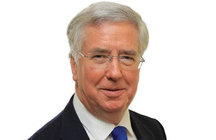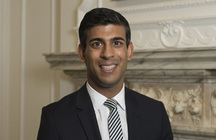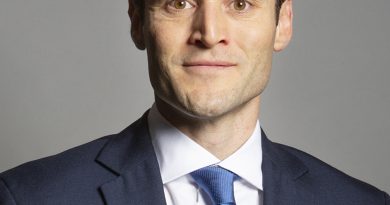Michael Fallon – 2016 Speech on the Future of NATO
Below is the text of the panel discussion with Michael Fallon, the Secretary of State for Defence, in Munich, Germany on 13 February 2016.
How can conflicting threat assessments and divergent strategic priorities among NATO member states be reconciled in the run-up to the Warsaw Summit?
This question is not new.
Before Warsaw was a NATO capital it was the name of a pact the Soviets had made. And people who came to this very room had many different views about how to confront the threat that entailed.
Today there’s a new urgency to our discussions.
On our Eastern flank, we see Russia refusing to accept the territorial integrity and sovereignty of countries in our backyard and resorting to military intervention and subversion. To our South, Da’esh is delighting in terror and using social media to spread its vile message.
And the migration crisis, fuelled in particular by the civil war in Syria, is challenging Europe’s commitment to free movement and testing our security services.
So, I think these three factors now present Europe with its biggest security challenge in over a quarter of a century.
Which problem do we prioritise?
That’s the question we addressed in our Strategic Defence and Security Review. And our answer was simple, it was all of them.
Where security is concerned, we can’t afford to make false choices.
But in tackling these multiple threats, my view is that NATO has to change in three ways:
PREPARED
First, it has to meet threats from every direction.
I know the very real concerns our Polish and Eastern allies have with Russian belligerence, just as our Southern allies are concerned about the chaos creeping close to their borders.
So we need to create a 21st century doctrine of deterrence which fits for this more uncertain, and unpredictable age. Which doesn’t just strike the right balance between forward presence and the ability to reinforce. But enhancing our resilience to hybrid warfare, to deal with threats such as cyber that blur the line between military and civilian domains.
Now when it’s in our interests, of course we have to pursue hard-headed engagement with Russia.
But hard headed equally means being honest and clear about Russia’s behaviour.
We called out Russia over its behaviour in Ukraine. Now in Syria we find Russian attacks not be targeted towards Daesh or Al Nusra, instead they appear to be deliberately bombing civilian areas.
And I believe if that doesn’t stop, Russia should and will pay a price.Just as we now reject Russia as a proper partner in Europe, Russia now risks becoming a pariah in the Middle East.
Now, properly calibrated, deterrence and engagement can be complementary not contradictory. But this is not a return to business as usual.
FITTER
Secondly, NATO must be fitter – able to react not just in weeks, or days but in hours.
So we’re calling on all Allies to support the Secretary General’s Adaptation plan.
Politically – to ensure the collective will to swiftly take decisions.
Militarily – putting the onus on agile forces…like the Very High Readiness Joint Task Force, N.
Institutionally – reducing the time to act and then re-allocate resources.
WELL FUNDED
Thirdly, NATO must be properly funded.
We can’t deal with divergent threats with inadequate resources.
We made a historic Investment Pledge at the Wales Summit.
Since then, at least seven nations have agreed to increase their defence spending.
We have committed to meeting the 2% of GDP target for the next five years.
But we all want to see countries renewing that pledge and committing to halting or reversing defence cuts.
CONCLUSION
So my answer, as we take the road to Warsaw, is to deal with these threats, NATO needs to become fitter. That means quicker decision-making, more troops able to move faster, and above all increased spend on equipment those troops need.



